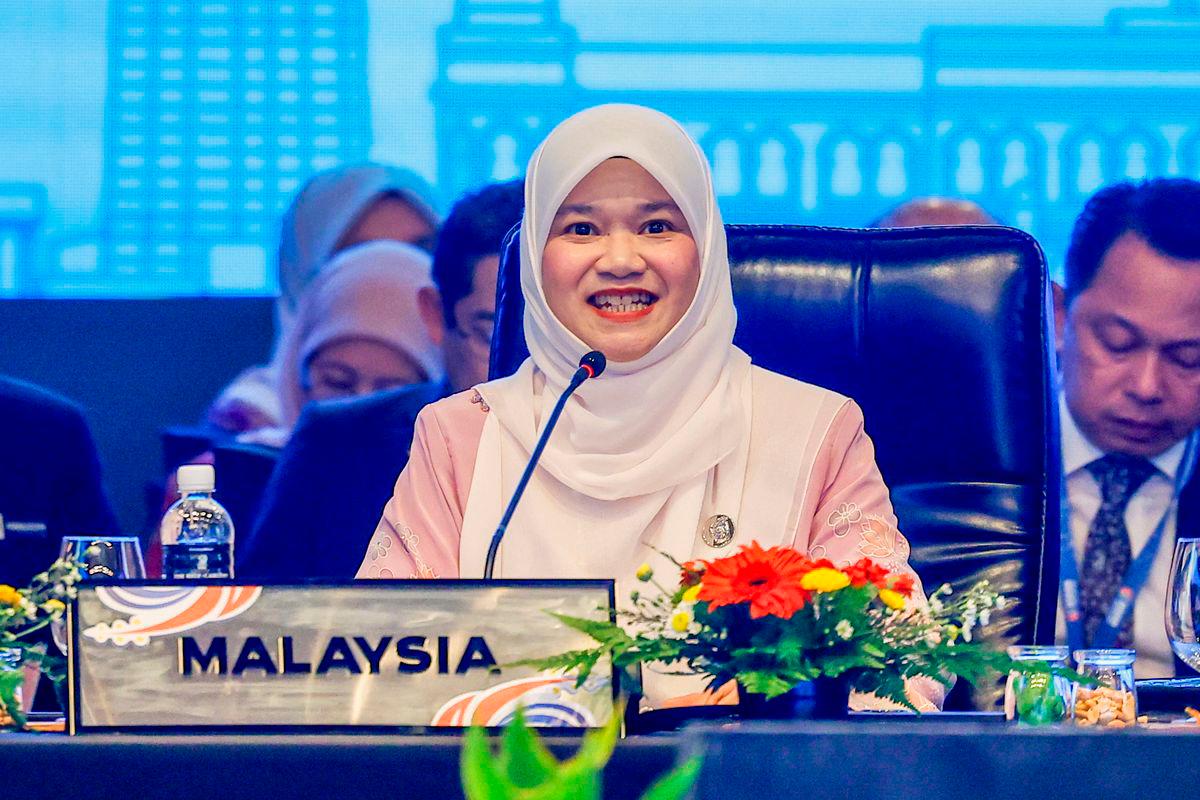LANGKAWI: The Langkawi Joint Statement on Out-of-School Children and Youth (OOSCY) has been agreed by ASEAN Education Ministers as a framework to address the challenges of access to education.
Education Minister Fadhlina Sidek said the key content of the document entitled “Accelerating Innovative Strategies: Addressing the OOSCY Challenges” will be further refined in a seminar ahead of the 47th ASEAN Summit in Kuala Lumpur this October.
“We have gone through a long process to reach a consensus on this commitment. Thankfully, no amendments were made and national leaders have given their respective views on how ASEAN can act as a united community to implement interventions and address this issue seriously.
“Malaysia will translate this commitment through the organisation of a seminar in October, and we hope that it can be changed to action after being agreed upon by all Education Ministers as a joint commitment,” she said at a press conference after the ASEAN Education Ministers and Higher Education Ministers Roundtable (#EduRoundtables2025) here today.
Fadhlina also stressed that the issue of student dropout as well as the level of numeracy and literacy are closely linked to poverty and must be given serious attention.
In Malaysia, for example, she said several interventions have been implemented, including leading the issue of foundational learning through expanding access to preschool education, establishing a special committee to strengthen the curriculum, and examining the need for digital technology reforms, including classrooms powered by artificial intelligence.
Langkawi’s Joint Statement on OOSCY acknowledges that crises and challenges in the ASEAN region including climate change, conflict situations, deepening poverty, income inequality and the lingering effects of the COVID-19 pandemic have exacerbated the inequality gap in education.
“We emphasise the urgent need to address educational disparities to ensure inclusive, accessible and high-quality education for OOSCY as underscored in the ASEAN Declaration on Strengthening Education for OOSCY, adopted in 2016.
“We underscore the necessity for ASEAN Member States to accelerate the implementation of innovative, targeted, and meaningful strategies within and across ASEAN to reduce the number of OOSCY within and across ASEAN states.
“We hereby call upon ASEAN Member States, in collaboration with development partners, civil society, and the private sector, to accelerate the adoption of innovative, technology-enabled and inclusive education strategies that ensure equitable learning opportunities for OOSCY, thereby fostering a resilient and future-ready ASEAN Community,” the document said.
Among the strategies highlighted to address OOSCY issues include Technology-Enabled Learning Solutions, AI-powered predictive analytics and data utilisation, capacity-building programmes, Public-Private Partnerships (PPPs), collaboration with NGOs and civil society organisations.
Other strategies are Alternative and Flexible Learning Pathways, Crisis-Responsive Education Policies, Inclusive Education Initiatives, Skills Development and Workforce Readiness, and Cross-Border Collaboration and Data-Driven Decision-Making.
This year marks the fifth time Malaysia has served as ASEAN Chairman, having held the position in 1977, 1997, 2005 and 2015.









